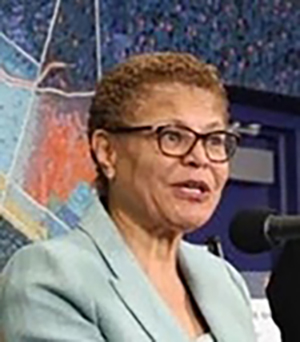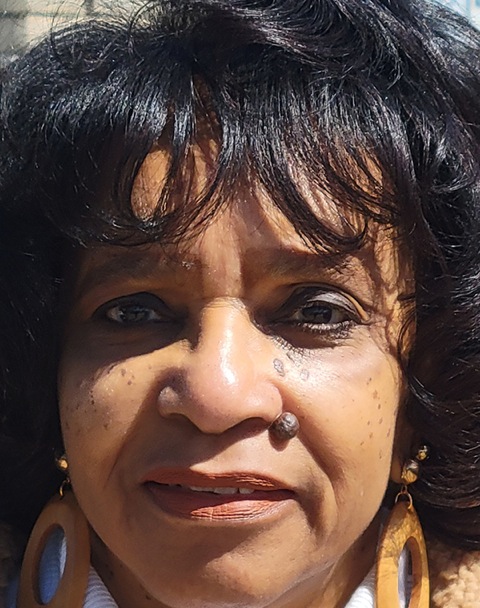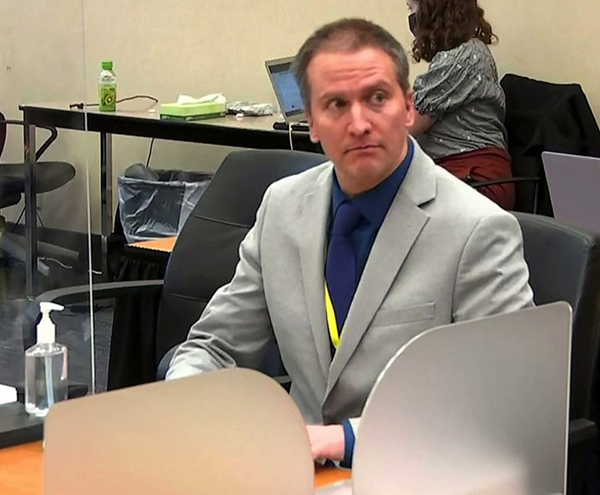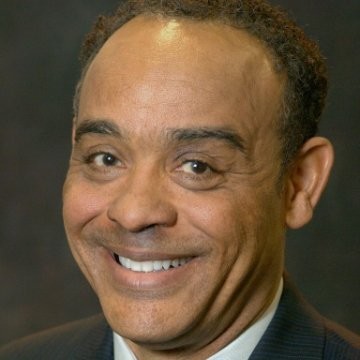THE HUTCHINSON REPORT: Candidates for mayor face tough challenges to fix L.A.

Mayor Karen Bass is being challenged in next year mayoral election by former Los Angeles Unified School District Superintendent Austin Beutner, and possibly by businessman and philanthropist Rick Caruso, who she defeated in 2022. Columnist Earl Ofari Hutchinson says whoever is elected has a tough job ahead of them.
Courtesy photos
By Earl Ofari Hutchinson
Contributing Columnist
Former Los Angeles Unified School District Superintendent Austin Beutner wasted no words in slamming Mayor Karen Bass. He blasted her for what he called “a failure of leadership.”
Beutner went on the attack in announcing his challenge to Bass. The Los Angeles mayoral election is in June 2026. Beutner almost certainly won’t be the only challenger to Bass.
Billionaire and politically well-connected Rick Caruso’s mayoral candidacy looms large. Though he has not officially announced another run at Bass, he looks and sounds like every bit the candidate.
I have received a steady stream of his online newsletters each week for the last few months. With only a slight variation, his theme is always the same.
The city is listing badly. City Hall is dysfunctional. Homelessness, public safety, fiscal waste and mismanagement, and a bloated non-sustainable budget, are chronic problems that continue to pile up.
Though Caruso is careful not to mention Bass by name as the culprit in his alleged badly adrift L.A., it takes no imagination to know whom he points the finger at for the city’s woes.
Prediction: almost certainly Caruso will utilize his corporate business ties, bottomless treasure chest and political connections for another challenge to Bass.
In addition to Beutner and Caruso, others will likely toss their hat in the mayoral ring. Bass will be squarely in their bullseye.
The crucial issue, as always, will be which candidate can actually deliver on the deluge of promises that they will make to solve the city’s mountainous problems. Let’s walk through the checklist.
Homelessness will again be the runaway number one crisis issue. The city has spent tens of millions, tossed up a few encampments and makeshift housing here and there, and repeatedly demanded taxpayers cough up millions on the pledge that their dollars will be used to end homelessness. Yet many of L.A. streets, parks, freeway sides and underpasses, still look Dystopian.
The prime answer is massive expansion of affordable housing followed by an equally massive investment in drug and alcohol counseling, job finding and placement, skills training and retraining, child care, nutrition and the ongoing monitoring of service programs to make a lasting dent in the problem.
This is a long, hard, uphill process. There are no quick fixes. The occupant of the mayor’s office at City Hall must understand that.
The homeless crisis does not exist in a vacuum. It has a nefarious twin that is virtually unchecked. High rents make housing and apartment affordability in L.A. a bad joke and swells the homeless numbers.
The mayoral winner must craft and push the City Council to enact a solid land-use plan to rein in upscale development. That means taking checkbook politics out of the development process while ensuring the building and subsidizing of more affordable housing.
Next is getting a handle on L.A.’s rampant sprawl that has turned freeways and streets into stalled parking lots for hours on end. The answer is the continued expansion of light transit, busways, traffic signal coordination and synchronization, traffic flow monitors at major thoroughfares and carpooling incentives.
Related to this is the issue of climate change and the environmental damage that poses grave peril to the city. The challenge is in greening the city, cooling the city, cleaning the air, providing clean and safe drinking water, reducing the massive amounts of carbon and fossil fuels that unchecked emissions, drilling and manufacturing and refining dump into the air and water. This requires a full-blown implementation of a green agenda, with funding, goals and timetables for getting measured results.
Then there is the always thorny issue of misconduct by Los Angeles police officers. How a mayor manages it is perennially the issue that mayors walk a tightrope on.
The trick is how to balance the ongoing fight for police reform, continuing to prod the department brass and the police commission to maintain vigilance on the issue, while also dealing with citizens’ fear of gang and criminal violence. The operative words on this remain firm direction, oversight and rigorous discipline.
The mayoral winner must understand that there are legions of voters who are fed up with the malaise, the fog of government and the self-serving that has often enveloped the mayor’s office. The taint of corruption, cronyism, manipulation, scheming and secrecy has been an ugly trademark of the City Council. That must end. And the mayoral winner must not trust the City Council to reform itself.
That means clamping down on special interest deal-making in and outside City Hall, trimming a bloated city bureaucracy and sneaky tax increases that smack of old-fashioned political pork barreling.
Put bluntly, there must be no “for sale” sign on City Hall. A major key to ensuring the smooth, effective, resident-friendly operation of city government is tough, hard monitoring oversight and review, and accountability of city agencies.
That starts with keeping a tight rein on the people who run those agencies. The mayor’s job is to make the right choices to head those agencies. In the absence of that, city agencies turn into top-heavy bureaucratic wasteful, crony-ridden entities.
The mayoral winner will have to hit the ground running. That requires political smarts, connections, ability and expertise to grapple effectively with L.A.’s colossal woes. That’s the daunting challenge the cast of L.A. mayoral contenders face.
Earl Ofari Hutchinson is an author and political analyst. His forthcoming book is “White-Supremacist-In-Chief” (Middle Passage Press).





